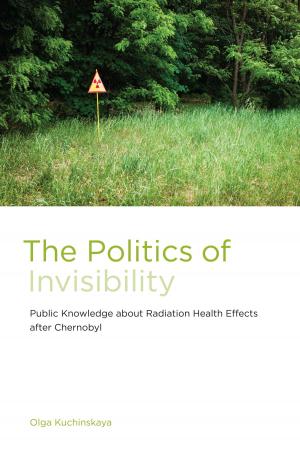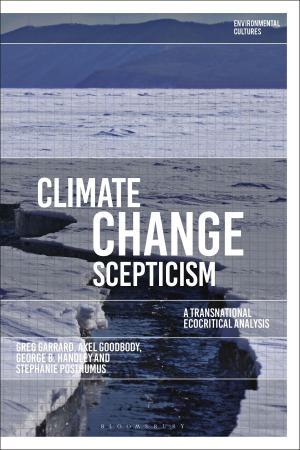Something's Rotten in Compost City: A Primer on the Politics of Food
Nonfiction, Social & Cultural Studies, Political Science, Government, Public Policy| Author: | Spring Gillard | ISBN: | 9781466148512 |
| Publisher: | Spring Gillard | Publication: | October 11, 2011 |
| Imprint: | Smashwords Edition | Language: | English |
| Author: | Spring Gillard |
| ISBN: | 9781466148512 |
| Publisher: | Spring Gillard |
| Publication: | October 11, 2011 |
| Imprint: | Smashwords Edition |
| Language: | English |
What is food security? What the hay is a food system? How resilient is ours? Why in a world of plenty are people still going hungry? What resources and programs are in place to ensure our food security and where are the gaps? What can we do to help strengthen the food system in our own community? Is there anything funny about suicide?
These are the questions posed by the author in: Something’s Rotten in Compost City, A Primer on the Politics of Food. This creative non-fiction book takes a lighter look at the politics of food, drawing on Gillard's personal and often comical adventures, as well as inspiring stories and models from around the world. We journey with her through the complicated food system in her quest to find answers.
In some ways this book picks up where Gillard's last book (Diary of a Compost Hotline Operator, Edible Essays on City Farming, New Society, 2003) left off. It is an account of her life after leaving City Farmer, a non-profit urban agriculture group and the compost demonstration garden in its charge. Her attraction to food politics was seeded in that garden and her experiences there shaped her brand of political activism, or what she calls political horticulture. As for the title, this book started as an animated film, a satire on the politics of food with characters drawn from the compost garden.
Presumably, it was a lot easier to be funny about composting. Gillard writes in the chapter on seeds: “Is there anything funny about suicide? Not that I could find. And that was the whole idea, to write a humorous account of my trip to India while slipping in some information about the sorry state of affairs around seeds. But for the life of me, I could not find one funny thing to say about suicide. The fact that Indian farmers were killing themselves depressed the hell out of me. I was beginning to feel suicidal myself.”
Something's Rotten is divided into four perspectives. In the Neighborhood looks at the more familiar food issues like eating, buying and growing locally and how that supports local farmers and a local food system. On the Farm deals with the loss of farmland, pesticide use, the impacts of climate change, and the challenges of going organic. On the World Market grapples with the more complex global issues, genetically modified foods, declining grain stocks and the food crisis, a burgeoning population, the international aid system, an entrenched world economic order, corporate imperialism and farmers’ suicides in India. Hilarious topics all! At the Store looks at the fair trade movement, fruit, and two of Gillard's favorite food groups: coffee and chocolate. Here she sums up what she's learned about the role of creativity in building resilient food systems and sustainable communities. The section brings it all back home again by identifying products on grocery store shelves that allow us to put our money where hungry mouths are.
In her last book, Gillard encouraged people to feed the earth by composting. This book invites readers to deepen their commitment to feeding the earth and gives them concrete ways they can join in the mission to eradicate hunger in the world and strengthen their local food system.
What is food security? What the hay is a food system? How resilient is ours? Why in a world of plenty are people still going hungry? What resources and programs are in place to ensure our food security and where are the gaps? What can we do to help strengthen the food system in our own community? Is there anything funny about suicide?
These are the questions posed by the author in: Something’s Rotten in Compost City, A Primer on the Politics of Food. This creative non-fiction book takes a lighter look at the politics of food, drawing on Gillard's personal and often comical adventures, as well as inspiring stories and models from around the world. We journey with her through the complicated food system in her quest to find answers.
In some ways this book picks up where Gillard's last book (Diary of a Compost Hotline Operator, Edible Essays on City Farming, New Society, 2003) left off. It is an account of her life after leaving City Farmer, a non-profit urban agriculture group and the compost demonstration garden in its charge. Her attraction to food politics was seeded in that garden and her experiences there shaped her brand of political activism, or what she calls political horticulture. As for the title, this book started as an animated film, a satire on the politics of food with characters drawn from the compost garden.
Presumably, it was a lot easier to be funny about composting. Gillard writes in the chapter on seeds: “Is there anything funny about suicide? Not that I could find. And that was the whole idea, to write a humorous account of my trip to India while slipping in some information about the sorry state of affairs around seeds. But for the life of me, I could not find one funny thing to say about suicide. The fact that Indian farmers were killing themselves depressed the hell out of me. I was beginning to feel suicidal myself.”
Something's Rotten is divided into four perspectives. In the Neighborhood looks at the more familiar food issues like eating, buying and growing locally and how that supports local farmers and a local food system. On the Farm deals with the loss of farmland, pesticide use, the impacts of climate change, and the challenges of going organic. On the World Market grapples with the more complex global issues, genetically modified foods, declining grain stocks and the food crisis, a burgeoning population, the international aid system, an entrenched world economic order, corporate imperialism and farmers’ suicides in India. Hilarious topics all! At the Store looks at the fair trade movement, fruit, and two of Gillard's favorite food groups: coffee and chocolate. Here she sums up what she's learned about the role of creativity in building resilient food systems and sustainable communities. The section brings it all back home again by identifying products on grocery store shelves that allow us to put our money where hungry mouths are.
In her last book, Gillard encouraged people to feed the earth by composting. This book invites readers to deepen their commitment to feeding the earth and gives them concrete ways they can join in the mission to eradicate hunger in the world and strengthen their local food system.















